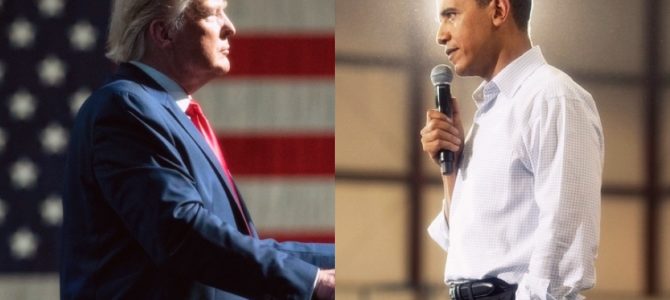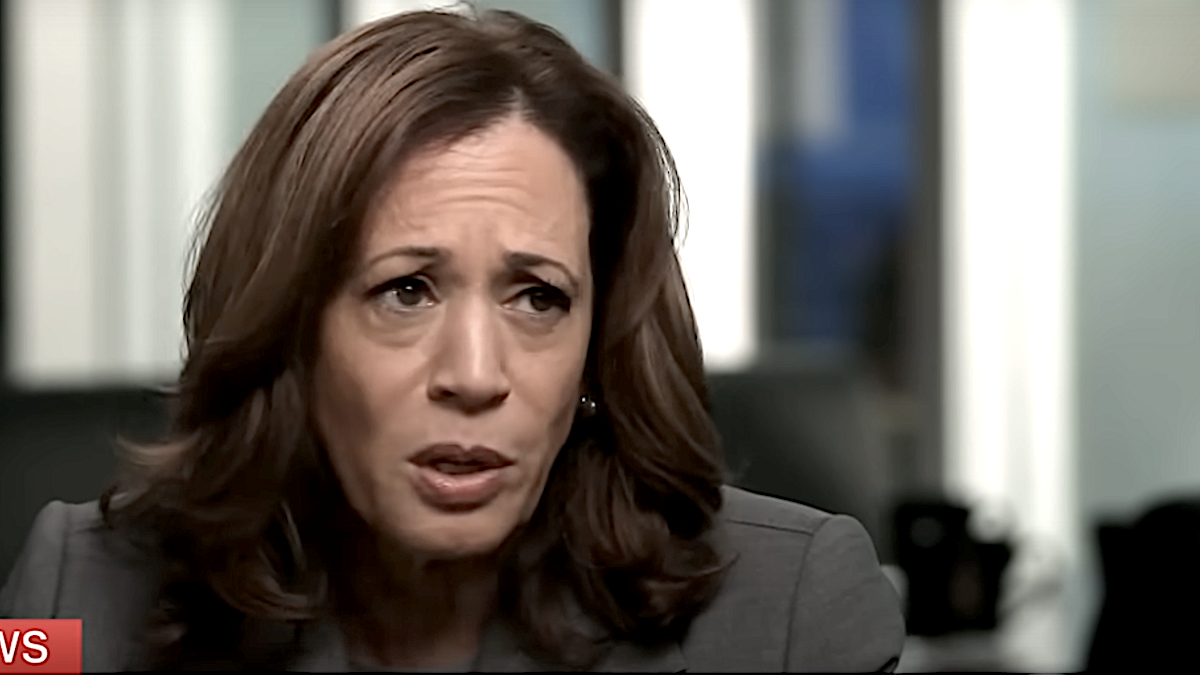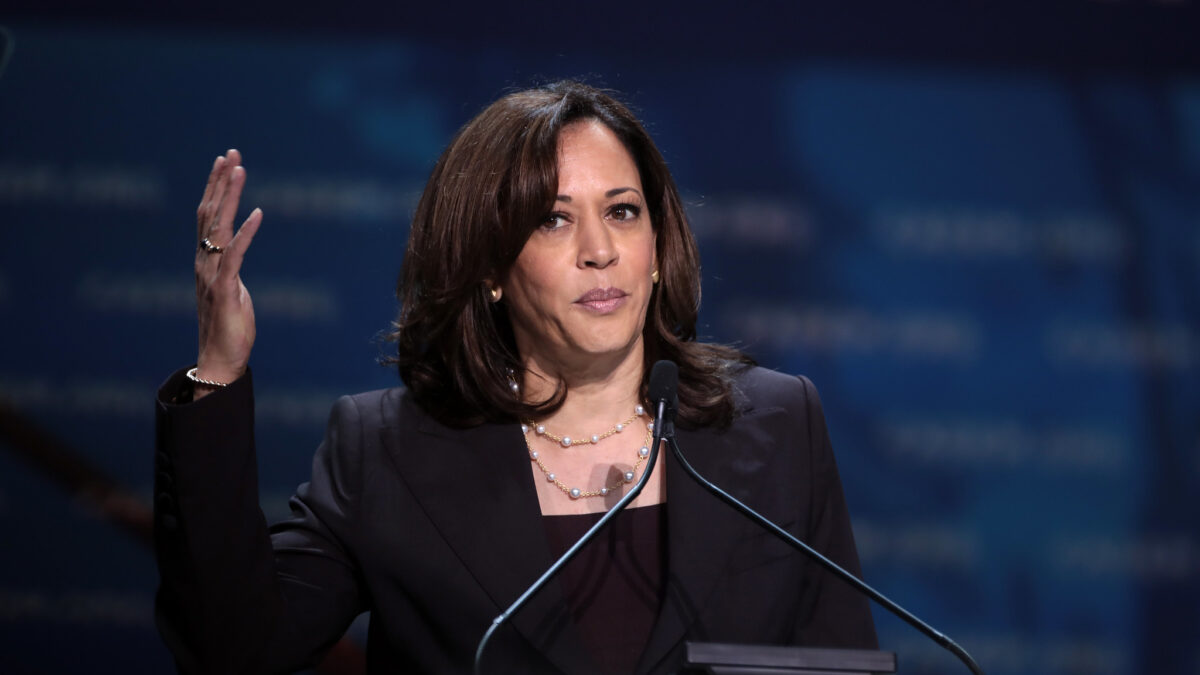
For more than a century, presidents have expanded the powers of the executive branch while Congress holds the door open. Compounding the problem, an increasing number of Americans see the person who occupies the presidency as an avatar with whom they should place their value, their hopes, and even their sense of purpose. The result has been disastrous.
Embracing a monarchical spirit in everything but name has pulled people away from tending to their local communities, fueled cults of personality, and done great harm to the checks and balances designed to protect our political system.
Borne by the overreaches of the Nixon administration, Arthur M. Schlesinger Jr. began referring to the executive branch of the American regime as the “imperial presidency.” Lamentably, despite a few brief interludes, we’ve witnessed the nation’s chief executive transform into something worse: The exalted presidency.
Leaders of the White House have become messianic figures to their political and media allies; their missteps and failures are explained away by a majority of their voters, and they receive more and more delegated power from a cowardly U.S. Congress that continues to shrink from its constitutional duties.
How we fix this will be an integral part of any attempt to restore balance to our republic. Indeed, reversing this trend is one of America’s best hopes to roll back the growing sense of disunity that plagues society. First, however, we need to know what we have to return to, and why we should.
A Foundational Fear of Concentrated Power
Just as the ancient Romans overthrew their last king in favor of a republic in c. 509 B.C., the American Revolution was a denunciation of monarchy in total, not merely a rejection of King George III. Our Founders rightly identified monarchs as emblems of corruption, recognizing that one-man-rule as a way of governing was fundamentally wrong and incompatible with a society that values freedom.
As when Lucius Tarquinius Superbus was deposed, rule by kings was the normal state of affairs for the vast majority of the world when the Declaration was signed in the summer of 1776. One of the seminal characteristics of both the Roman and American republics was their courageous and firm understanding that they were choosing to be set apart from the ways of other nations.
The American government was designed to be representative of the will of the people and granted legitimacy via their enlightened consent. Safeguards, checks, balances, and divisions of power were established to deter both the dominance of a passionate, intemperate mob and of a single individual.
Although the esteemed Roman senator Cato the Elder spoke for the Roman Republic, his words apply all the more to our own American Republic two millennia later:
The reason for the superiority of the constitution of our city to that of other states is that the latter almost always had their laws and institutions from one legislator. But our Republic was not made by the genius of one man, but of many, nor in the life of one, but through many centuries and generations.
In republics both ancient and modern, reason and historical evidence repeatedly prove the greatest threat to liberty comes from concentrated power.
Americans used to hold tightly to a deep-rooted, enduring suspicion of concentrated power of any kind — especially when it crept into the presidency. Unfortunately, that well-earned wisdom didn’t last past the 19th century. By the 20th century, as George Reedy writes, “the presidency had taken on all the regalia of monarchy except ermine robes, a scepter, and a crown.”
‘Whenever and in Whatever Manner Was Necessary’
In his work “The Spirit of the Laws,” Montesquieu rightly observes, “There can be no liberty where the legislative and executive powers are united in the same person.” Forty years later in “Federalist No. 46,” James Madison echoes his concern:
The accumulation of all power, legislative, executive, and judiciary in the same hands … may justly be pronounced the very definition of tyranny.
With its origins dating back to Progressive President Theodore Roosevelt, the innocently named yet insidiously pernicious “stewardship theory” of presidential power threatens to further weaken the already eroded safeguards barely holding our republic together. In his 1913 autobiography, TR offers up his justification for the more hands-on Progressive approach he took while occupied the Oval Office:
I acted for the public welfare, I acted for the common well-being of all our people, whenever and in whatever manner was necessary, unless prevented by direct constitutional or legislative prohibition.
For TR, the president was to be “a steward of the people” bound actively and affirmatively “to do all he could for the people and not to content himself with the negative merit of keeping his talents undamaged in a napkin.”
Yet his successor, William Howard Taft, took up a position far more in line with the original intent of the Constitution and vision of the separation of powers desired by the Founders. In 1916, in the book “Our Chief Magistrate and His Powers,” Taft writes:
The President can exercise no power which cannot be fairly and reasonably traced to some specific grant of power of justly implied and included within such express grant as proper and necessary to its exercise.
Unlike TR, who viewed the presidency as an office imbued with nearly limitless undelineated powers, Taft explains:
There is no undefined residuum of power which he can exercise because it seems to him to be in the public interest. … The mainspring of such a view is that the Executive is charged with responsibility for the welfare of all the people in a general way, that he is to play the part of a Universal Providence and set all things right … the wide field of action that this would give to the Executive one can hardly limit.
Barely five years leaving office, TR’s belief in a powerful presidency filled with a grandiose persona was the template exploited by arch-Progressive Woodrow Wilson.
‘Like Clay’
During the span of just two administrations, the occupant of the Oval Office went from executing laws to writing them — corralling the whole U.S. government to do his will.
Wilson expanded on TR’s blank-check “stewardship” approach, believing America needed a leader who could arouse and harness “lies waiting to be stirred.” For Wilson, whole masses of men were to be “like clay” in the hands of a Great Leader:
The competent leader of men cares little for the interior niceties of other people’s characters: he cares much-everything for the external uses to which they may be put. His will seeks the lines of least resistance; but the whole question with him is a question of the application of force. … They have no thought for occasion, no capacity for compromise.
As Charles Kesler has noted, in 12 of the 14 instances the “Federalist Papers” mention the word “leader” or “leaders” the word is used negatively — associating “leaders” with demagoguery, factionalism, and vice.
Since the United States is, at its core, a nation founded on self-government and small-r republicanism, Wilson’s insistence that the country ought to be led by a great “Leader of Men” is not only misguided but a complete departure from America’s philosophical and political moorings.
‘Transcending’ the Office
During the last century, we’ve allowed the presidency to be turned into precisely the entity that Wilson wanted it to be, a turn of events that should fill us with shame. Wilson’s vision of the presidency was taken up by FDR in 1932 through his “New Deal” program, then further expanded by President Lyndon B. Johnson in 1964.
By the time of the election of Barack Obama, the presidency had not just assumed Johnson’s “Great Society” manta of being the source of all future healing — promising not just to end poverty, but abstractions like “loneliness” itself — but had become a full-blown celebrity outfit catering to egotistical personalities surrounded by legions of adoring and undyingly loyal cheerleaders.
Oprah Winfrey dubbed Obama “The One.” Columnist Mark Morford called Obama “a Lightworker,” an “attuned being” to “help usher in a new way of being on the planet.” Ezra Klein couldn’t contain himself after the 2008 Iowa Caucuses, saying of Obama, “He is not the Word made flesh, but the triumph of word over flesh, over color, over despair.”
Not to be outdone by his fawning admirers, Obama himself claimed to be able to “repair this world” and “fundamentally transform the United States of America,” and audaciously proclaimed his triumph marked “the moment when the rise of the oceans began to slow and our planet began to heal.”
As for the successive administration, Hogan Gidley, the former national press secretary for Donald Trump’s re-election campaign, referred to Trump as “the most masculine man” to ever hold the White House. Senior advisor Stephen Miller called Trump “the most gifted politician of our time” and “the best orator” to become president “in generations.” In his most recent book, writer Victor Davis Hanson goes so far as to liken Trump to Achilles, Augustus, Martin Luther, and Julius Caesar (meant as a compliment).
Trump himself asserted “there’s nobody bigger or better at the military than I am,” maintained at his 2016 Republican National Convention speech that only he could fix what ailed America, and proclaimed he was a Presbyterian Christian who never asked God for forgiveness.
The humility and grace of statesmen like George Washington or Abraham Lincoln is a tall order for anyone to emulate, but both Obama and Trump fell far short of the humble dignity the office of the presidency demands. Consequentially, the imperial presidency became an exalted one. With the levels of worshipful praise that we’ve witnessed during the last two presidencies, the detrimental nationalization of our politics shouldn’t shock us one bit.
Unqualified Immunity
Criticisms of Obama or his policies, no matter how justified, were reflexively cited as proof of one’s conscious (or unconscious) racism, essentially shielding Obama from tangible condemnation.
Plainly, any broad-brush insults or attacks on large, heterogeneous segments of the American population should be denounced. Yet, similar to the reflexive racism defense lobbied at Obama’s detractors, in Trump’s late-presidency and now ex-presidency periods, criticism of Trump’s actions or policies is routinely cited by Trump’s die-hard defenders as evidence of one’s supposed disdain for the 74 million Americans who voted for him.
Like the Obama “racism!” retort, this has the effect — intended or not — of heading off any condemnation of Trump at the pass. Truly, if “criticizing president X means you hate all those who voted for X” becomes a permanent, reoccurring defense, then engaging in serious political debates or holding America’s chief executive to account will be nearly impossible.
Both catch-all, cover-all rebuttals — “You’re just racist!” and “You just hate his voters!” — are antithetical to the discourse intended by our Founders to keep our republic functioning. We have no kings here. Presidents, like any other politician, should be applauded when they do good and decried when they err. Indeed, as Lord Acton reminds us, “There is no worse heresy than that the office sanctifies the holder of it.”
No one is supposed to be above the law or above criticism and reproach — presidents least of all. Because of the immense power and influence they wield, the president should be the most critiqued and prodded citizen in the country, if for no other reason than it will make them better at the gravely serious job before them.
Regrettably, however, while we’re only in the second full week of Joe Biden’s tenure, it looks like the exalted presidency is set to continue with the 46th president.
Healthy Antipathy
Of course, the legislative branch needs to get back to the business of legislating rather than delegating its powers to the other branches. Congress’s decades-long dereliction of its Constitutional duties have added to the bloated largess of the administrative state and enabled them to dodge taking stances on difficult — but pressing — issues while posing for photo ops and fishing for viral social media clips.
The executive branch needs to get back to taking care that the U.S. Constitution and the laws of the nation are being faithfully executed rather than abusing executive orders as a way to bypass Congress from the legislative process entirely.
Yes, in the final analysis, what we need is for the separate branches of our republic to re-assert and re-assume their proper roles as envisioned by the Founders and articulated in Articles I, II, and III of the Constitution. The brilliant political machinery of the American republic isn’t broken. What’s broken is our capacity for self-rule.
Little by little, we’ve come to expect less of ourselves while placing more of our purpose and hopes with whoever resides in the White House.
The fault, dear Brutus, is not in our stars, but in ourselves, that we are underlings.
(“Julius Caesar,” Act I, Scene III)
Even strong leg muscles will atrophy after decades of neglect, requiring crutches in order to walk. After surrendering the responsibility of self-government for so long, the presidency has become the crutch where we rest the burdens that used to be shouldered by our communities, our families, and our places of worship. The problem is, however, that the harder we lean on this crutch, the harder it is to get back up on our own two feet, and the more we sink into a posture that looks a whole lot like servitude.
As Schleisinger Jr. wrote back in 1973, “When presidents begin to succumb to delusions of grandeur, when the checks and balances inside themselves stop operating, external checks and balances may well become necessary to save the republic.” Realistically, however, as most such measures would require constitutional amendments, for the time being, it seems highly likely any sort of major reforms to the office of the presidency will continue to exist only in the realm of political “what if” fantasyland.
Instead, the solution must come from us. We the people must be the check on the presidency. We the people must demand Congress take back its role as the preeminent branch of government. We the people must starve presidents of the attention and absolute loyalty they now crave. We the people must roll back and curtail the unbridled reverence of the presidency that has warped the Oval Office.
Through the power of our collective voices and votes, we the people must begin to rescind the exalted presidency, and rediscover our quintessentially American antipathy towards monarchs — no matter if their official title isn’t “king” but “president.”









